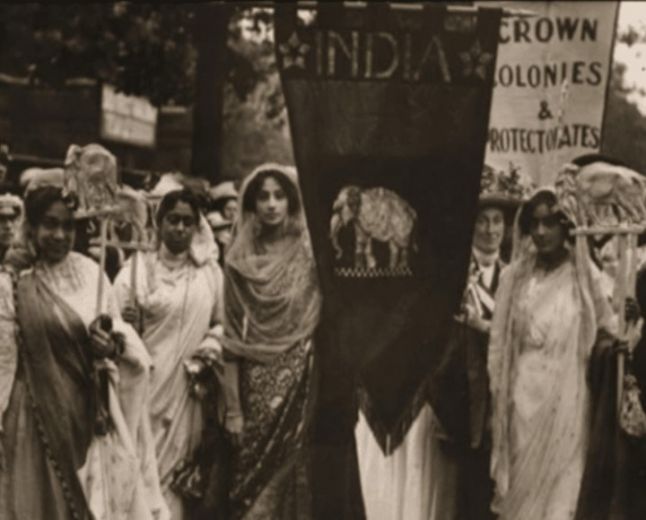The untold story of the Indian suffragettes

Sponsored by

Sponsored by

The British suffrage movement is widely associated with the white and Anglocentric narrative of history. Research and campaigning by Dr Sumita Mukherjee from the University of Bristol’s Department of History has shattered received ideas on the British suffragette movement, introducing the stories of minority ethnic women into the narrative.
Her work led to the inclusion of two Indian suffragettes: Sophia Duleep Singh and Lolita Roy in the names and images featured on the plinth of the Millicent Fawcett statue in Parliament Square, London.
Who were the Indian suffragettes?
Sophia Duleep Singh, born in London in 1876, was perhaps the most prominent minority ethnic woman involved in the British suffrage movement. Despite her privileged position, she became increasingly engaged in activism following a visit to India in 1907. Singh was a member of the Women’s Tax Resistance League and the Women’s Social and Political Union. She refused to pay taxes and was repeatedly fined for unpaid license fees and, along with Emmeline Pankhurst, led one of the major suffrage demonstrations in 1910, known as Black Friday.
Lolita Roy (also known as P. L. Roy) moved to England from Calcutta in 1900. She became president of the London Indian Union and a founding member of the Indian Women’s Education Association. In these roles, she raised money for scholarships to bring Indian women to Britain for teacher training courses and petitioned the British government to give women the vote in India. Roy also participated in the Women's Coronation Procession organized by the Women's Social and Political Union in 1911. Dr Mukherjee’s work demonstrates however that inclusion in such events amounted to little more than tokenistic attempts at being diverse, rather than reflecting a broader inclusion of minority ethnic women by the British suffragettes.
Changing the public narrative
While the British suffrage movement was more diverse than typically portrayed, it was not as inclusive as it could have been. British suffragettes were known to argue that if they had the vote, they could “save” colonial women in the empire; Dr Mukherjee’s research found that white British suffrage campaigners were not thinking about women of colour and including them as equals in the movement.
During the centenary year of the British suffrage movement, Dr Mukherjee held a workshop in Parliament for policymakers, parliamentarians, academics and activists to consider ways of using suffrage histories from the Global South to inform policymaking on inclusion and representation. Attendees of the workshop were encouraged to think about the policy implications of the suffrage movement and methods for campaigning for greater racial and gender diversity in the UK parliament.
Dr Mukherjee’s research and campaigning have shed light on the untold story of Indian suffragettes, who were marginalized in the British suffrage movement. Her work has also sparked discussions on race and representation in the 21st century.
Read the full story here
Find out more about global feminism research at Bristol.